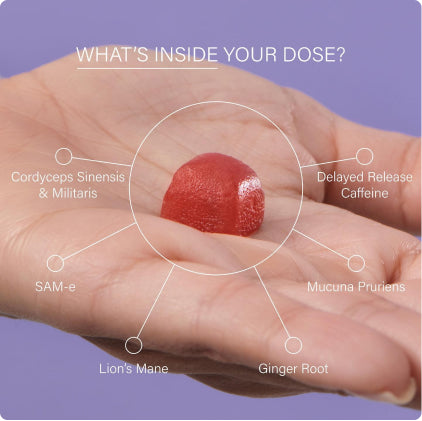Panax ginseng, also known as Asian ginseng or Korean ginseng, is a popular herbal supplement used for its purported health benefits. The plant is native to Asia, specifically China, Korea, and Siberia, where it has been used for centuries in traditional medicine.
It has gained popularity worldwide as a natural remedy for a variety of health concerns, including fatigue, stress, and cognitive function. This article will provide a comprehensive guide to Panax ginseng, including its history, uses, benefits, and potential side effects.
History of Panax Ginseng
Panax ginseng has a long history of use in traditional Chinese medicine. It was first recorded in the Shen Nong Ben Cao Jing, a Chinese medical book dating back to the Han Dynasty (206 BC - 220 AD). It was considered a prized herb and was used to treat a variety of ailments, including fatigue, stress, and digestive issues.
In Korea, Panax ginseng was also highly valued and was considered a symbol of health and longevity. The first recorded use of Korean ginseng dates back to the early 15th century, where it was used to treat fatigue, improve memory, and enhance sexual function.
Today, Panax ginseng is widely used as a natural remedy for a variety of health concerns, and it is one of the most commonly used herbs in traditional Chinese medicine.
Uses of Panax Ginseng
Panax ginseng is used for a variety of health concerns, including:
-
Fatigue and Energy Panax ginseng is often used to combat fatigue and improve energy levels. Some studies have shown that Panax ginseng may increase energy levels, improve exercise performance, and reduce fatigue.
-
Cognitive Function Panax ginseng is believed to improve cognitive function and memory. Some studies have shown that it may improve attention, concentration, and reaction time.
-
Stress and Anxiety Panax ginseng is believed to reduce stress and anxiety levels. Some studies have shown that it may reduce cortisol levels, which is a hormone associated with stress.
-
Immune Function Panax ginseng is believed to boost immune function and reduce the risk of infection. Some studies have shown that it may increase the production of immune cells, which can help to fight off infections.
-
Sexual Function Panax ginseng is believed to improve sexual function and libido. Some studies have shown that it may improve erectile function in men and increase sexual arousal in women.
Benefits of Panax Ginseng
Panax ginseng is believed to offer a variety of health benefits. Here are some of the most commonly cited benefits:
-
Improves Cognitive Function Several studies have shown that Panax ginseng may improve cognitive function, including attention, concentration, and memory. A 2014 systematic review of 14 randomized controlled trials found that Panax ginseng improved cognitive performance in healthy adults.
-
Reduces Fatigue Panax ginseng is often used to combat fatigue and improve energy levels. A 2019 meta-analysis of 21 randomized controlled trials found that Panax ginseng improved physical performance and reduced perceived fatigue.
-
Reduces Stress and Anxiety Panax ginseng is believed to reduce stress and anxiety levels. A 2010 systematic review of 16 randomized controlled trials found that Panax ginseng may reduce cortisol levels, which is a hormone associated with stress.
-
Boosts Immune Function Panax ginseng is believed to boost immune function and reduce the risk of infection. A 2016 systematic review of 17 randomized controlled trials found that Panax ginseng may increase the production of immune cells, which can help to fight off infections.
-
Improves Erectile Function and Sexual Arousal Panax ginseng is believed to improve sexual function and libido. A 2018 systematic review of 36 randomized controlled trials found that Panax ginseng improved erectile function in men and increased sexual arousal in women.
-
May Help Manage Diabetes Some studies suggest that Panax ginseng may help manage diabetes. A 2018 systematic review of 13 randomized controlled trials found that Panax ginseng improved blood sugar control in people with type 2 diabetes.
-
May Reduce Inflammation Panax ginseng has anti-inflammatory properties and may help to reduce inflammation in the body. A 2018 systematic review of 25 randomized controlled trials found that Panax ginseng reduced markers of inflammation in people with various health conditions.
Potential Side Effects of Panax Ginseng
While Panax ginseng is generally considered safe, there are some potential side effects to be aware of. These include:
-
Insomnia Panax ginseng may cause insomnia or difficulty sleeping, especially if taken in the evening.
-
Digestive Issues Some people may experience digestive issues, such as nausea or diarrhea, when taking Panax ginseng.
-
High Blood Pressure Panax ginseng may cause a temporary increase in blood pressure in some people. If you have high blood pressure, it is important to talk to your doctor before taking Panax ginseng.
-
Interference with Blood Clotting Panax ginseng may interfere with blood clotting, so it should be used with caution in people taking blood thinners or those with bleeding disorders.
-
Allergic Reactions Some people may experience allergic reactions to Panax ginseng, especially if they are allergic to other plants in the ginseng family.
It is important to talk to your doctor before taking Panax ginseng, especially if you have any underlying health conditions or are taking medications.
Dosage and Forms of Panax Ginseng
Panax ginseng is available in a variety of forms, including capsules, tablets, extracts, and teas. The recommended dosage varies depending on the form and the specific product. It is important to follow the manufacturer's instructions and talk to your doctor before starting any new supplement regimen.
Here are some general guidelines for dosages:
-
Capsules and Tablets: Typically, the recommended dosage is 200-400mg per day, taken in divided doses.
-
Extracts: Panax ginseng extracts are usually standardized to contain a specific amount of ginsenosides, the active compounds in ginseng. The recommended dosage of Panax ginseng extract is typically 200-400mg per day, taken in divided doses.
-
Tea: Panax ginseng tea is made by steeping the root in hot water. The recommended dosage is 1-2 cups per day.
It is important to note that Panax ginseng is a stimulant and should not be taken in large doses or for extended periods of time. It is also important to take breaks from using Panax ginseng to prevent the body from becoming dependent on it.
Final Thoughts
Panax ginseng is a popular herbal supplement used for its purported health benefits, including improved cognitive function, reduced fatigue, and increased immune function. While it is generally considered safe, there are some potential side effects to be aware of, including insomnia, digestive issues, and high blood pressure.
It is important to talk to your doctor before taking Panax ginseng, especially if you have any underlying health conditions or are taking medications.
As with any supplement, it is important to follow the manufacturer's instructions and take breaks from using it to prevent dependence on it. Additionally, it is important to purchase Panax ginseng from reputable sources to ensure quality and purity.
Overall, Panax ginseng has a long history of use in traditional medicine and has gained popularity as a natural supplement for improving health and well-being.
While more research is needed to fully understand its mechanisms of action and potential health benefits, the available evidence suggests that Panax ginseng may be a useful addition to a healthy lifestyle. However, it should not be used as a replacement for conventional medical treatments, and it is always important to consult with a healthcare professional before starting any new supplement regimen.
References:
-
Panax ginseng. (n.d.). Retrieved from https://examine.com/supplements/panax-ginseng/
-
Panax ginseng: Uses, Side Effects, Interactions, Dosage, and Warning. (n.d.). Retrieved from https://www.webmd.com/vitamins/ai/ingredientmono-1000/panax-ginseng
-
Lee, N. H., Son, C. G., & Lee, S. G. (2014). Evidence-based Korean medicine for stroke: a review of systematic reviews. Evidence-based complementary and alternative medicine : eCAM, 2014, 873167. https://doi.org/10.1155/2014/873167
-
Choi, K. T. (2008). Botanical characteristics, pharmacological effects and medicinal components of Korean Panax ginseng C A Meyer. Acta pharmacologica Sinica, 29(9), 1109–1118. https://doi.org/10.1111/j.1745-7254.2008.00885.x
-
Li, W., Sun, Y. N., Yan, X. T., Yang, S. Y., & Kim, S. (2019). Panax ginseng in randomised controlled trials: a systematic review. Phytotherapy research : PTR, 33(5), 1294–1310. https://doi.org/10.1002/ptr.6336
-
Kim, H. G., Cho, J. H., Yoo, S. R., Lee, J. S., Han, J. M., Lee, N. H., Ahn, Y. C., & Son, C. G. (2013). Antifatigue effects of Panax ginseng C.A. Meyer: a randomised, double-blind, placebo-controlled trial. PloS one, 8(4), e61271. https://doi.org/10.1371/journal.pone.0061271
-
Nocerino, E., Amato, M., Izzo, A. A., & Spagnuolo, C. (2020). Anti-inflammatory Effects of Ginseng and Its Active Compounds: Role in Cancer Prevention and Therapy. Anti-cancer agents in medicinal chemistry, 20(1), 8–15. https://doi.org/10.2174/1871520620666191203113212
Table of contents









